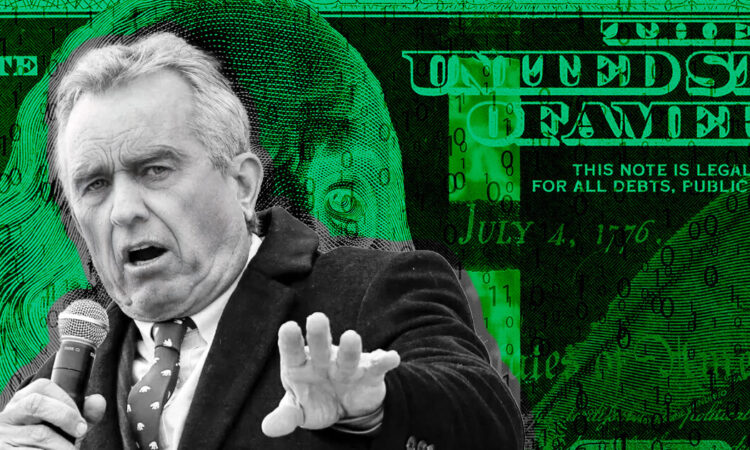
Robert Kennedy Jr. — a presidential candidate in the United States — believes the Federal Reserve’s digital payments system “FedNow” is the government’s first step to banning Bitcoin (BTC).
According to Kennedy, people should not be blinded by claims that FedNow would be initially restricted to interbank transactions. He pointed out that this could be “the first step in banning and seizing bitcoin as the Treasury did with gold 90 years ago today in 1933.”
The Fed announced that the FedNow payment system would be launched in July. The payment system is designed to allow bill payments, money transfers, and other activities to move faster and at a lower cost.
Several crypto stakeholders have pointed out that this move could be the government’s way of competing against the industry.
Meanwhile, the U.S. government’s recent crackdown on the crypto industry has been described as “operation chokepoint 2.0.” Law firm Cooper & Kirk said the “backroom war on crypto” was unlawful, unconstitutional, and arbitrary.
Kennedy highlights the dangers of CBDCs
The Democrat equated the FedNow to a Central Bank Digital Currency (CBDC), highlighting several dangers that this portends for U.S. citizens.
According to Kennedy Jr., CBDCs grease the slippery slope to financial slavery and political tyranny. He noted that the government could use this digital currency to “surveil all our private financial affairs.”
“The central bank will have the power to enforce dollar limits on our transactions restricting where you can send money, where you can spend it, and when money expires.”
He explained that the digital currency could give the government power to freeze citizens’ assets or even limit their spending when they fail to “to comply with arbitrary diktats.”
The presidential candidate added:
“Watch as governments, which never let a good crisis go to waste, use Covid-19 and the banking crisis to usher in a new wave of CBDCs as a safe haven from germ-laden paper currencies or as protection against bank runs.”
Kennedy is a nephew of President John F. Kennedy and the son of the U.S. attorney general and New York Senator Robert F. Kennedy.
Disclaimer: Our writers’ opinions are solely their own and do not reflect the opinion of CryptoSlate. None of the information you read on CryptoSlate should be taken as investment advice, nor does CryptoSlate endorse any project that may be mentioned or linked to in this article. Buying and trading cryptocurrencies should be considered a high-risk activity. Please do your own due diligence before taking any action related to content within this article. Finally, CryptoSlate takes no responsibility should you lose money trading cryptocurrencies.



